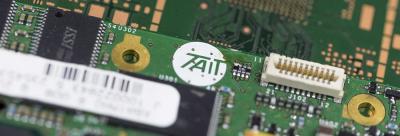The future of manufacturing has always been a topic of much discussion and debate. In a rapidly changing economic and technological environment, this future may be more volatile and hard to predict, but bring with it greater opportunities for those who adapt and lead.
Despite recent improvements in confidence and sentiment in the manufacturing sector, many of our members are quite uncertain about future orders, both in the short and long term. Is this part of a current crisis or part of a new and developing economic reality for manufacturers in New Zealand?
Globalisation comes with many benefits; allowing our manufacturers to get over the problems of distance and a small domestic market. On the downside, volatility has increased through greater exposure to conditions and competition in overseas markets, global commodity cycles, and even larger currency fluctuations; due to financial liberalisation and larger monetary flows, particularly with the large global stimulus (a.k.a. printing of money) following the Global Financial Crisis.
This increasing exposure to global markets, paired with ever improving communication technology, means changes in markets can quickly affect demand and prices for our exporters, and allow purchasers to easily find a more competitive supplier if we can’t keep up. These changing dynamics could explain some of the increased volatility manufacturers have continued to experience – trends that are likely to continue and potentially accelerate, particularly around the use of new manufacturing technologies, and represent significant challenges as well as opportunities for our manufacturers in the future.
Looking forward, the coming wave of technology-led disruption has been referred to as “Industry 4.0”. Industry 4.0 is described in a recent report on manufacturing by McKinsey & Company, saying "we define Industry 4.0 as the next phase in the digitisation of the manufacturing sector, driven by four disruptions: the astonishing rise in data volumes, computational power, and connectivity, especially new low-power wide-area networks; the emergence of analytics and business-intelligence capabilities; new forms of human-machine interaction such as touch interfaces and augmented-reality systems; and improvements in transferring digital instructions to the physical world, such as advanced robotics and 3-D printing.”
These advancements will affect different sub-sectors of manufacturing in different ways. For many manufacturers, this may mean increased use of more advanced and adaptive robots, and increased use of real-time data to analyse production systems and more complex supply chains across different firms. This could lead to huge increases in productivity and potentially make production processes more adaptive and customisable for making multiple products. Given that being highly responsive in terms of volumes and delivery times has become a big part of the value proposition for a lot of our manufacturers, does the increased flexibility awarded by new manufacturing technologies pose a big threat to our manufacturers? It could do – but it should also equip New Zealand manufacturers with the tools to get much better at something they excel at already.
It is impossible to predict how exactly all these changing technologies will effect manufacturing businesses and global markets - whether it will be a revolution in how manufacturing is done, or just a continuation of current trends. But we do know many of these technologies are being used in some manufacturing operations already, and will become more widely used in the next five to ten years. We will all need to prepare for this, first and foremost by being aware of the potential changes that will affect your business, and starting to plan and invest in them early. Investing will be essential both in the technology and systems required, but more importantly in your staff through training and recruitment, as a new and changing mix of skills will be needed.
As well as individual manufacturers preparing for these changes, government also has a big role to play. Firstly through education, ensuring modern skill requirements are focused on throughout our education system, and providing opportunities for people to retrain and develop new skills. A longer term view of education will be needed, as new skills take time to work through the system. Secondly, there may be areas in which the government can invest to encourage the uptake of new technologies, particularly where up-front cost is large, as well as incentivisingbusinesses to conduct R&D to stay ahead.
Technology change in manufacturing will have ramifications for jobs and workers. It is true some lower level jobs may be replaced by advanced robots. But these new technologies will also create new jobs that are more highly paid and require a new, more adaptive skill set. These jobs require a mix of production knowledge and IT skills to make full use of even more automated systems.
This continual adaption and development of technology may well mean that market volatility is indeed the new normal for businesses operating on the world stage. Continued volatility coupled with technological disruptions may mean many manufacturers need to revisit and adapt their business models as time goes on. But in the mean time, the most important thing is trying to be aware of the potential changes to your businesses, prepare, and invest early.




